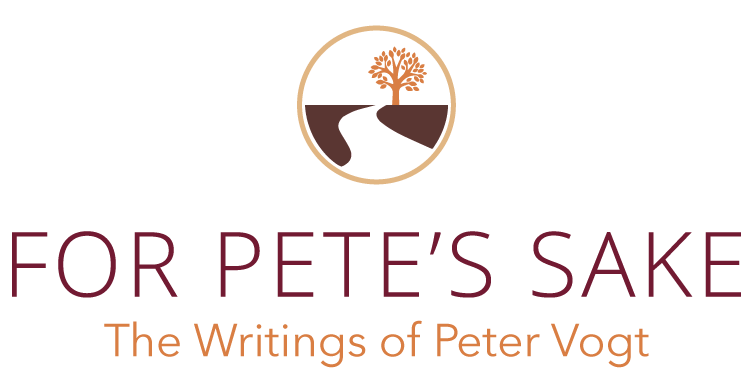We Control Only So Much — We Have to Wing the Rest
There were all sorts of ways the kids could die, be it at the hands of an unseen power line or the paws of an unfed feline.
We were at the Tamarac National Wildlife Refuge near my hometown of Detroit Lakes, Minnesota. I was with my son Theo’s fourth-grade class, and we were discovering on this leg of the field trip how millions of birds die each year in the face of obvious and less than obvious mortal threats.
The kids were paying attention well enough on this perfect spring morning amidst the sparkling blue lakes. But talk — as the instructor, a retired teacher named Dave, knew from decades of experience — only goes so far. Especially with squirrely, here-come-the-hormones nine- and 10-year-olds out in the bright sunshine after a long winter, sitting crisscross-applesauce in a clearing surrounded by whistling pine trees, nature’s music, and … well, each other.
Movement, action, involvement: These are the strategies that make the lessons stick when you’re out in the sticks with a bunch of wild animals. So Dave had the kids line up for an elaborate, eye-opening game. They would be birds migrating from Florida back to Minnesota. Their simple task: To survive a series of potential death traps through a combination of their own efforts and fate.
At station one, Theo’s teacher and her paraprofessional held a jump rope representing a power line, moving it back and forth and up and down while each student tried to get past. “If you touch the rope, you’re dead,” Dave deadpanned, reminding the kids that they actually had an unfair advantage over real birds — for they were “flying” in broad daylight, not at night when the power lines are hidden hazards.
The kids who made it past the “power line” then faced one of their classmates wearing a cat puppet on his hand. They had to dart past the “cat,” grab a colored plastic egg (pink, yellow, orange, blue, or green), and then evade the “cat” once again without getting caught. “If the cat touches you, you’re dead,” Dave dutifully noted.
The kids who survived then lined up before three of their classmates representing buildings. Each “building” had two cards, one in each hand. “If you pick the card that says ‘window closed,’ that means you just ran into a window while you were flying. You’re dead,” Dave said.
The handful of kids who got through this final challenge could then go and pick up three colored poker chips (blue, red, or white) representing food. Perhaps they were in the clear thanks to their superior skills and intellect.
Not so fast.
Dave then revealed that some of the survivors were actually dead already; they had picked the wrong-colored egg while dodging the cat — meaning that a cowbird had chosen to lay her eggs in their nest while they themselves were still embryos growing inside their own mother’s eggs. The cowbird’s eggs had hatched first, and the young cowbird thugs had pushed the unlucky kid-birds out of the nest once they’d been born — killing them.
Still, a few of the kids remained alive in the game. Momentarily. But if they had chosen the wrong-colored chip as their food, they had unknowingly selected a meal laced with pesticides. Dave’s response, naturally: “You’re dead.”
The kids played the game five or six times, and only a handful survived each round. Those who did jumped up and down and cheered for themselves and their accomplishment, as kids are prone to do. But pure chance had played a significant role in giving them the gift of living on.
I’m confident I won’t be eaten today — haven’t even thought about it — and I likely won’t be electrocuted or crushed or poisoned or bumped off either. But I’ll face other threats and struggles, seen and unseen. So will you. And so will everyone else on this earth. It’s part of the gig.
Life is a never-ending cycle of being proactive to circumstance yet reactive to happenstance. Of advancing and adapting at the same time. We have to be able to do both, not only to survive but to thrive.
We control what we’re capable of controlling; that’s as it should be. But as Theo and his classmates learned the other day, we can’t control it all. Thinking we can — and do — is for the birds.

I’m a writer. An essayist, to be more exact. I tell stories here—true stories, from my own life, in hopes they will make a positive difference in yours.
I share laughs and tears, insights and observations, frustrations and realizations, relying all the while on the storytelling wisdom of Julia Cameron, author of The Right to Write.
It is a great paradox that the more personal, focused, and specific your writing becomes, the more universally it communicates.

Leave a Reply
Want to join the discussion?Feel free to contribute!